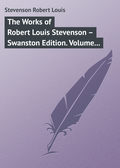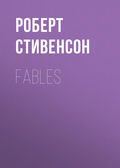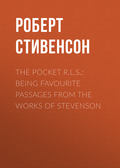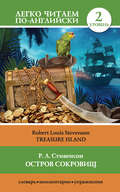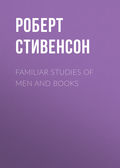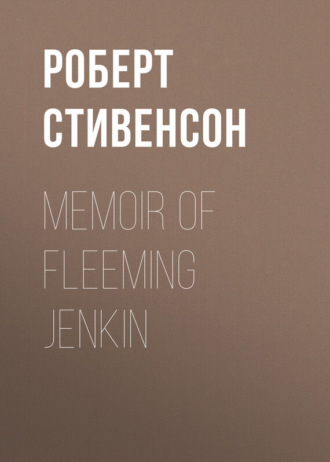
Роберт Льюис Стивенсон
Memoir of Fleeming Jenkin
But there is another side to the stage-manager’s employment. The discipline of acting is detestable; the failures and triumphs of that business appeal too directly to the vanity; and even in the course of a careful amateur performance such as ours, much of the smaller side of man will be displayed. Fleeming, among conflicting vanities and levities, played his part to my admiration. He had his own view; he might be wrong; but the performances (he would remind us) were after all his, and he must decide. He was, in this as in all other things, an iron taskmaster, sparing not himself nor others. If you were going to do it at all, he would see that it was done as well as you were able. I have known him to keep two culprits (and one of these his wife) repeating the same action and the same two or three words for a whole weary afternoon. And yet he gained and retained warm feelings from far the most of those who fell under his domination, and particularly (it is pleasant to remember) from the girls. After the slipshod training and the incomplete accomplishments of a girls’ school, there was something at first annoying, at last exciting and bracing, in this high standard of accomplishment and perseverance.
III
It did not matter why he entered upon any study or employment, whether for amusement like the Greek tailoring or the Highland reels, whether from a desire to serve the public as with his sanitary work, or in the view of benefiting poorer men as with his labours for technical education, he ‘pitched into it’ (as he would have said himself) with the same headlong zest. I give in the Appendix a letter from Colonel Fergusson, which tells fully the nature of the sanitary work and of Fleeming’s part and success in it. It will be enough to say here that it was a scheme of protection against the blundering of builders and the dishonesty of plumbers. Started with an eye rather to the houses of the rich, Fleeming hoped his Sanitary Associations would soon extend their sphere of usefulness and improve the dwellings of the poor. In this hope he was disappointed; but in all other ways the scheme exceedingly prospered, associations sprang up and continue to spring up in many quarters, and wherever tried they have been found of use.
Here, then, was a serious employment; it has proved highly useful to mankind; and it was begun besides, in a mood of bitterness, under the shock of what Fleeming would so sensitively feel – the death of a whole family of children. Yet it was gone upon like a holiday jaunt. I read in Colonel Fergusson’s letter that his schoolmates bantered him when he began to broach his scheme; so did I at first, and he took the banter as he always did with enjoyment, until he suddenly posed me with the question: ‘And now do you see any other jokes to make? Well, then,’ said he, ‘that’s all right. I wanted you to have your fun out first; now we can be serious.’ And then with a glowing heat of pleasure, he laid his plans before me, revelling in the details, revelling in hope. It was as he wrote about the joy of electrical experiment. ‘What shall I compare them to? A new song? – a Greek play?’ Delight attended the exercise of all his powers; delight painted the future. Of these ideal visions, some (as I have said) failed of their fruition. And the illusion was characteristic. Fleeming believed we had only to make a virtue cheap and easy, and then all would practise it; that for an end unquestionably good, men would not grudge a little trouble and a little money, though they might stumble at laborious pains and generous sacrifices. He could not believe in any resolute badness. ‘I cannot quite say,’ he wrote in his young manhood, ‘that I think there is no sin or misery. This I can say: I do not remember one single malicious act done to myself. In fact it is rather awkward when I have to say the Lord’s Prayer. I have nobody’s trespasses to forgive.’ And to the point, I remember one of our discussions. I said it was a dangerous error not to admit there were bad people; he, that it was only a confession of blindness on our part, and that we probably called others bad only so far as we were wrapped in ourselves and lacking in the transmigratory forces of imagination. I undertook to describe to him three persons irredeemably bad and whom he should admit to be so. In the first case, he denied my evidence: ‘You cannot judge a man upon such testimony,’ said he. For the second, he owned it made him sick to hear the tale; but then there was no spark of malice, it was mere weakness I had described, and he had never denied nor thought to set a limit to man’s weakness. At my third gentleman, he struck his colours. ‘Yes,’ said he, ‘I’m afraid that is a bad man.’ And then looking at me shrewdly: ‘I wonder if it isn’t a very unfortunate thing for you to have met him.’ I showed him radiantly how it was the world we must know, the world as it was, not a world expurgated and prettified with optimistic rainbows. ‘Yes, yes,’ said he; ‘but this badness is such an easy, lazy explanation. Won’t you be tempted to use it, instead of trying to understand people?’
In the year 1878, he took a passionate fancy for the phonograph: it was a toy after his heart, a toy that touched the skirts of life, art, and science, a toy prolific of problems and theories. Something fell to be done for a University Cricket Ground Bazaar. ‘And the thought struck him,’ Mr. Ewing writes to me, ‘to exhibit Edison’s phonograph, then the very newest scientific marvel. The instrument itself was not to be purchased – I think no specimen had then crossed the Atlantic – but a copy of the Times with an account of it was at hand, and by the help of this we made a phonograph which to our great joy talked, and talked, too, with the purest American accent. It was so good that a second instrument was got ready forthwith. Both were shown at the Bazaar: one by Mrs. Jenkin to people willing to pay half a crown for a private view and the privilege of hearing their own voices, while Jenkin, perfervid as usual, gave half-hourly lectures on the other in an adjoining room – I, as his lieutenant, taking turns. The thing was in its way a little triumph. A few of the visitors were deaf, and hugged the belief that they were the victims of a new kind of fancy-fair swindle. Of the others, many who came to scoff remained to take raffle tickets; and one of the phonographs was finally disposed of in this way, falling, by a happy freak of the ballot-box, into the hands of Sir William Thomson.’ The other remained in Fleeming’s hands, and was a source of infinite occupation. Once it was sent to London, ‘to bring back on the tinfoil the tones of a lady distinguished for clear vocalisations; at another time Sir Robert Christison was brought in to contribute his powerful bass’; and there scarcely came a visitor about the house, but he was made the subject of experiment. The visitors, I am afraid, took their parts lightly: Mr. Hole and I, with unscientific laughter, commemorating various shades of Scotch accent, or proposing to ‘teach the poor dumb animal to swear.’ But Fleeming and Mr. Ewing, when we butterflies were gone, were laboriously ardent. Many thoughts that occupied the later years of my friend were caught from the small utterance of that toy. Thence came his inquiries into the roots of articulate language and the foundations of literary art; his papers on vowel sounds, his papers in the Saturday Review upon the laws of verse, and many a strange approximation, many a just note, thrown out in talk and now forgotten. I pass over dozens of his interests, and dwell on this trifling matter of the phonograph, because it seems to me that it depicts the man. So, for Fleeming, one thing joined into another, the greater with the less. He cared not where it was he scratched the surface of the ultimate mystery – in the child’s toy, in the great tragedy, in the laws of the tempest, or in the properties of energy or mass – certain that whatever he touched, it was a part of life – and however he touched it, there would flow for his happy constitution interest and delight. ‘All fables have their morals,’ says Thoreau, ‘but the innocent enjoy the story.’ There is a truth represented for the imagination in these lines of a noble poem, where we are told, that in our highest hours of visionary clearness, we can but
‘see the children sport upon the shore
And hear the mighty waters rolling evermore.’
To this clearness Fleeming had attained; and although he heard the voice of the eternal seas and weighed its message, he was yet able, until the end of his life, to sport upon these shores of death and mystery with the gaiety and innocence of children.
IV
It was as a student that I first knew Fleeming, as one of that modest number of young men who sat under his ministrations in a soul-chilling class-room at the top of the University buildings. His presence was against him as a professor: no one, least of all students, would have been moved to respect him at first sight: rather short in stature, markedly plain, boyishly young in manner, cocking his head like a terrier with every mark of the most engaging vivacity and readiness to be pleased, full of words, full of paradox, a stranger could scarcely fail to look at him twice, a man thrown with him in a train could scarcely fail to be engaged by him in talk, but a student would never regard him as academical. Yet he had that fibre in him that order always existed in his class-room. I do not remember that he ever addressed me in language; at the least sign of unrest, his eye would fall on me and I was quelled. Such a feat is comparatively easy in a small class; but I have misbehaved in smaller classes and under eyes more Olympian than Fleeming Jenkin’s. He was simply a man from whose reproof one shrank; in manner the least buckrammed of mankind, he had, in serious moments, an extreme dignity of goodness. So it was that he obtained a power over the most insubordinate of students, but a power of which I was myself unconscious. I was inclined to regard any professor as a joke, and Fleeming as a particularly good joke, perhaps the broadest in the vast pleasantry of my curriculum. I was not able to follow his lectures; I somehow dared not misconduct myself, as was my customary solace; and I refrained from attending. This brought me at the end of the session into a relation with my contemned professor that completely opened my eyes. During the year, bad student as I was, he had shown a certain leaning to my society; I had been to his house, he had asked me to take a humble part in his theatricals; I was a master in the art of extracting a certificate even at the cannon’s mouth; and I was under no apprehension. But when I approached Fleeming, I found myself in another world; he would have naught of me. ‘It is quite useless for you to come to me, Mr. Stevenson. There may be doubtful cases, there is no doubt about yours. You have simply not attended my class.’ The document was necessary to me for family considerations; and presently I stooped to such pleadings and rose to such adjurations, as made my ears burn to remember. He was quite unmoved; he had no pity for me. – ‘You are no fool,’ said he, ‘and you chose your course.’ I showed him that he had misconceived his duty, that certificates were things of form, attendance a matter of taste. Two things, he replied, had been required for graduation, a certain competency proved in the final trials and a certain period of genuine training proved by certificate; if he did as I desired, not less than if he gave me hints for an examination, he was aiding me to steal a degree. ‘You see, Mr. Stevenson, these are the laws and I am here to apply them,’ said he. I could not say but that this view was tenable, though it was new to me; I changed my attack: it was only for my father’s eye that I required his signature, it need never go to the Senatus, I had already certificates enough to justify my year’s attendance. ‘Bring them to me; I cannot take your word for that,’ said he. ‘Then I will consider.’ The next day I came charged with my certificates, a humble assortment. And when he had satisfied himself, ‘Remember,’ said he, ‘that I can promise nothing, but I will try to find a form of words.’ He did find one, and I am still ashamed when I think of his shame in giving me that paper. He made no reproach in speech, but his manner was the more eloquent; it told me plainly what a dirty business we were on; and I went from his presence, with my certificate indeed in my possession, but with no answerable sense of triumph. That was the bitter beginning of my love for Fleeming; I never thought lightly of him afterwards.
Once, and once only, after our friendship was truly founded, did we come to a considerable difference. It was, by the rules of poor humanity, my fault and his. I had been led to dabble in society journalism; and this coming to his ears, he felt it like a disgrace upon himself. So far he was exactly in the right; but he was scarce happily inspired when he broached the subject at his own table and before guests who were strangers to me. It was the sort of error he was always ready to repent, but always certain to repeat; and on this occasion he spoke so freely that I soon made an excuse and left the house with the firm purpose of returning no more. About a month later, I met him at dinner at a common friend’s. ‘Now,’ said he, on the stairs, ‘I engage you – like a lady to dance – for the end of the evening. You have no right to quarrel with me and not give me a chance.’ I have often said and thought that Fleeming had no tact; he belied the opinion then. I remember perfectly how, so soon as we could get together, he began his attack: ‘You may have grounds of quarrel with me; you have none against Mrs. Jenkin; and before I say another word, I want you to promise you will come to her house as usual.’ An interview thus begun could have but one ending: if the quarrel were the fault of both, the merit of the reconciliation was entirely Fleeming’s.
When our intimacy first began, coldly enough, accidentally enough on his part, he had still something of the Puritan, something of the inhuman narrowness of the good youth. It fell from him slowly, year by year, as he continued to ripen, and grow milder, and understand more generously the mingled characters of men. In the early days he once read me a bitter lecture; and I remember leaving his house in a fine spring afternoon, with the physical darkness of despair upon my eyesight. Long after he made me a formal retractation of the sermon and a formal apology for the pain he had inflicted; adding drolly, but truly, ‘You see, at that time I was so much younger than you!’ And yet even in those days there was much to learn from him; and above all his fine spirit of piety, bravely and trustfully accepting life, and his singular delight in the heroic.
His piety was, indeed, a thing of chief importance. His views (as they are called) upon religious matters varied much; and he could never be induced to think them more or less than views. ‘All dogma is to me mere form,’ he wrote; ‘dogmas are mere blind struggles to express the inexpressible. I cannot conceive that any single proposition whatever in religion is true in the scientific sense; and yet all the while I think the religious view of the world is the most true view. Try to separate from the mass of their statements that which is common to Socrates, Isaiah, David, St. Bernard, the Jansenists, Luther, Mahomet, Bunyan – yes, and George Eliot: of course you do not believe that this something could be written down in a set of propositions like Euclid, neither will you deny that there is something common and this something very valuable… I shall be sorry if the boys ever give a moment’s thought to the question of what community they belong to – I hope they will belong to the great community.’ I should observe that as time went on his conformity to the church in which he was born grew more complete, and his views drew nearer the conventional. ‘The longer I live, my dear Louis,’ he wrote but a few months before his death, ‘the more convinced I become of a direct care by God – which is reasonably impossible – but there it is.’ And in his last year he took the communion.
But at the time when I fell under his influence, he stood more aloof; and this made him the more impressive to a youthful atheist. He had a keen sense of language and its imperial influence on men; language contained all the great and sound metaphysics, he was wont to say; and a word once made and generally understood, he thought a real victory of man and reason. But he never dreamed it could be accurate, knowing that words stand symbol for the indefinable. I came to him once with a problem which had puzzled me out of measure: what is a cause? why out of so many innumerable millions of conditions, all necessary, should one be singled out and ticketed ‘the cause’? ‘You do not understand,’ said he. ‘A cause is the answer to a question: it designates that condition which I happen to know and you happen not to know.’ It was thus, with partial exception of the mathematical, that he thought of all means of reasoning: they were in his eyes but means of communication, so to be understood, so to be judged, and only so far to be credited. The mathematical he made, I say, exception of: number and measure he believed in to the extent of their significance, but that significance, he was never weary of reminding you, was slender to the verge of nonentity. Science was true, because it told us almost nothing. With a few abstractions it could deal, and deal correctly; conveying honestly faint truths. Apply its means to any concrete fact of life, and this high dialect of the wise became a childish jargon.
Thus the atheistic youth was met at every turn by a scepticism more complete than his own, so that the very weapons of the fight were changed in his grasp to swords of paper. Certainly the church is not right, he would argue, but certainly not the anti-church either. Men are not such fools as to be wholly in the wrong, nor yet are they so placed as to be ever wholly in the right. Somewhere, in mid air between the disputants, like hovering Victory in some design of a Greek battle, the truth hangs undiscerned. And in the meanwhile what matter these uncertainties? Right is very obvious; a great consent of the best of mankind, a loud voice within us (whether of God, or whether by inheritance, and in that case still from God), guide and command us in the path of duty. He saw life very simple; he did not love refinements; he was a friend to much conformity in unessentials. For (he would argue) it is in this life as it stands about us, that we are given our problem; the manners of the day are the colours of our palette; they condition, they constrain us; and a man must be very sure he is in the right, must (in a favourite phrase of his) be ‘either very wise or very vain,’ to break with any general consent in ethics. I remember taking his advice upon some point of conduct. ‘Now,’ he said, ‘how do you suppose Christ would have advised you?’ and when I had answered that he would not have counselled me anything unkind or cowardly, ‘No,’ he said, with one of his shrewd strokes at the weakness of his hearer, ‘nor anything amusing.’ Later in life, he made less certain in the field of ethics. ‘The old story of the knowledge of good and evil is a very true one,’ I find him writing; only (he goes on) ‘the effect of the original dose is much worn out, leaving Adam’s descendants with the knowledge that there is such a thing – but uncertain where.’ His growing sense of this ambiguity made him less swift to condemn, but no less stimulating in counsel. ‘You grant yourself certain freedoms. Very well,’ he would say, ‘I want to see you pay for them some other way. You positively cannot do this: then there positively must be something else that you can do, and I want to see you find that out and do it.’ Fleeming would never suffer you to think that you were living, if there were not, somewhere in your life, some touch of heroism, to do or to endure.
This was his rarest quality. Far on in middle age, when men begin to lie down with the bestial goddesses, Comfort and Respectability, the strings of his nature still sounded as high a note as a young man’s. He loved the harsh voice of duty like a call to battle. He loved courage, enterprise, brave natures, a brave word, an ugly virtue; everything that lifts us above the table where we eat or the bed we sleep upon. This with no touch of the motive-monger or the ascetic. He loved his virtues to be practical, his heroes to be great eaters of beef; he loved the jovial Heracles, loved the astute Odysseus; not the Robespierres and Wesleys. A fine buoyant sense of life and of man’s unequal character ran through all his thoughts. He could not tolerate the spirit of the pick-thank; being what we are, he wished us to see others with a generous eye of admiration, not with the smallness of the seeker after faults. If there shone anywhere a virtue, no matter how incongruously set, it was upon the virtue we must fix our eyes. I remember having found much entertainment in Voltaire’s Saül, and telling him what seemed to me the drollest touches. He heard me out, as usual when displeased, and then opened fire on me with red-hot shot. To belittle a noble story was easy; it was not literature, it was not art, it was not morality; there was no sustenance in such a form of jesting, there was (in his favourite phrase) ‘no nitrogenous food’ in such literature. And then he proceeded to show what a fine fellow David was; and what a hard knot he was in about Bathsheba, so that (the initial wrong committed) honour might well hesitate in the choice of conduct; and what owls those people were who marvelled because an Eastern tyrant had killed Uriah, instead of marvelling that he had not killed the prophet also. ‘Now if Voltaire had helped me to feel that,’ said he, ‘I could have seen some fun in it.’ He loved the comedy which shows a hero human, and yet leaves him a hero, and the laughter which does not lessen love.
It was this taste for what is fine in human-kind, that ruled his choice in books. These should all strike a high note, whether brave or tender, and smack of the open air. The noble and simple presentation of things noble and simple, that was the ‘nitrogenous food’ of which he spoke so much, which he sought so eagerly, enjoyed so royally. He wrote to an author, the first part of whose story he had seen with sympathy, hoping that it might continue in the same vein. ‘That this may be so,’ he wrote, ‘I long with the longing of David for the water of Bethlehem. But no man need die for the water a poet can give, and all can drink it to the end of time, and their thirst be quenched and the pool never dry – and the thirst and the water are both blessed.’ It was in the Greeks particularly that he found this blessed water; he loved ‘a fresh air’ which he found ‘about the Greek things even in translations’; he loved their freedom from the mawkish and the rancid. The tale of David in the Bible, the Odyssey, Sophocles, Æschylus, Shakespeare, Scott; old Dumas in his chivalrous note; Dickens rather than Thackeray, and the Tale of Two Cities out of Dickens: such were some of his preferences. To Ariosto and Boccaccio he was always faithful; Burnt Njal was a late favourite; and he found at least a passing entertainment in the Arcadia and the Grand Cyrus. George Eliot he outgrew, finding her latterly only sawdust in the mouth; but her influence, while it lasted, was great, and must have gone some way to form his mind. He was easily set on edge, however, by didactic writing; and held that books should teach no other lesson but what ‘real life would teach, were it as vividly presented.’ Again, it was the thing made that took him, the drama in the book; to the book itself, to any merit of the making, he was long strangely blind. He would prefer the Agamemnon in the prose of Mr. Buckley, ay, to Keats. But he was his mother’s son, learning to the last. He told me one day that literature was not a trade; that it was no craft; that the professed author was merely an amateur with a door-plate. ‘Very well,’ said I, ‘the first time you get a proof, I will demonstrate that it is as much a trade as bricklaying, and that you do not know it.’ By the very next post, a proof came. I opened it with fear; for he was indeed, as the reader will see by these volumes, a formidable amateur; always wrote brightly, because he always thought trenchantly; and sometimes wrote brilliantly, as the worst of whistlers may sometimes stumble on a perfect intonation. But it was all for the best in the interests of his education; and I was able, over that proof, to give him a quarter of an hour such as Fleeming loved both to give and to receive. His subsequent training passed out of my hands into those of our common friend, W. E. Henley. ‘Henley and I,’ he wrote, ‘have fairly good times wigging one another for not doing better. I wig him because he won’t try to write a real play, and he wigs me because I can’t try to write English.’ When I next saw him, he was full of his new acquisitions. ‘And yet I have lost something too,’ he said regretfully. ‘Up to now Scott seemed to me quite perfect, he was all I wanted. Since I have been learning this confounded thing, I took up one of the novels, and a great deal of it is both careless and clumsy.’
V
He spoke four languages with freedom, not even English with any marked propriety. What he uttered was not so much well said, as excellently acted: so we may hear every day the inexpressive language of a poorly-written drama assume character and colour in the hands of a good player. No man had more of the vis comica in private life; he played no character on the stage, as he could play himself among his friends. It was one of his special charms; now when the voice is silent and the face still, it makes it impossible to do justice to his power in conversation. He was a delightful companion to such as can bear bracing weather; not to the very vain; not to the owlishly wise, who cannot have their dogmas canvassed; not to the painfully refined, whose sentiments become articles of faith. The spirit in which he could write that he was ‘much revived by having an opportunity of abusing Whistler to a knot of his special admirers,’ is a spirit apt to be misconstrued. He was not a dogmatist, even about Whistler. ‘The house is full of pretty things,’ he wrote, when on a visit; ‘but Mrs. – ’s taste in pretty things has one very bad fault: it is not my taste.’ And that was the true attitude of his mind; but these eternal differences it was his joy to thresh out and wrangle over by the hour. It was no wonder if he loved the Greeks; he was in many ways a Greek himself; he should have been a sophist and met Socrates; he would have loved Socrates, and done battle with him staunchly and manfully owned his defeat; and the dialogue, arranged by Plato, would have shown even in Plato’s gallery. He seemed in talk aggressive, petulant, full of a singular energy; as vain you would have said as a peacock, until you trod on his toes, and then you saw that he was at least clear of all the sicklier elements of vanity. Soundly rang his laugh at any jest against himself. He wished to be taken, as he took others, for what was good in him without dissimulation of the evil, for what was wise in him without concealment of the childish. He hated a draped virtue, and despised a wit on its own defence. And he drew (if I may so express myself) a human and humorous portrait of himself with all his defects and qualities, as he thus enjoyed in talk the robust sports of the intelligence; giving and taking manfully, always without pretence, always with paradox, always with exuberant pleasure; speaking wisely of what he knew, foolishly of what he knew not; a teacher, a learner, but still combative; picking holes in what was said even to the length of captiousness, yet aware of all that was said rightly; jubilant in victory, delighted by defeat: a Greek sophist, a British schoolboy.
Among the legends of what was once a very pleasant spot, the old Savile Club, not then divorced from Savile Row, there are many memories of Fleeming. He was not popular at first, being known simply as ‘the man who dines here and goes up to Scotland’; but he grew at last, I think, the most generally liked of all the members. To those who truly knew and loved him, who had tasted the real sweetness of his nature, Fleeming’s porcupine ways had always been a matter of keen regret. They introduced him to their own friends with fear; sometimes recalled the step with mortification. It was not possible to look on with patience while a man so lovable thwarted love at every step. But the course of time and the ripening of his nature brought a cure. It was at the Savile that he first remarked a change; it soon spread beyond the walls of the club. Presently I find him writing: ‘Will you kindly explain what has happened to me? All my life I have talked a good deal, with the almost unfailing result of making people sick of the sound of my tongue. It appeared to me that I had various things to say, and I had no malevolent feelings, but nevertheless the result was that expressed above. Well, lately some change has happened. If I talk to a person one day, they must have me the next. Faces light up when they see me. – “Ah, I say, come here,” – “come and dine with me.” It’s the most preposterous thing I ever experienced. It is curiously pleasant. You have enjoyed it all your life, and therefore cannot conceive how bewildering a burst of it is for the first time at forty-nine.’ And this late sunshine of popularity still further softened him. He was a bit of a porcupine to the last, still shedding darts; or rather he was to the end a bit of a schoolboy, and must still throw stones, but the essential toleration that underlay his disputatiousness, and the kindness that made of him a tender sicknurse and a generous helper, shone more conspicuously through. A new pleasure had come to him; and as with all sound natures, he was bettered by the pleasure.



